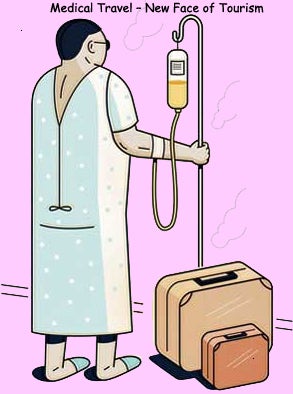Mexican Exposures
 Mexican Exposures is a collaborative project that brings together medical anthropologists and environmental health scientists to create a bioethnographic research platform. This platform combines data gathered through both ethnographic and bioscience methods to arrive at a better understanding of the larger histories, life circumstances, and environments that shape health, disease, and inequality. Our bioethnographic platform joins two different methodological bundles—ethnographic observation and biochemical sampling—in a synthetic, symmetrical analysis that understands environment-body interactions as always relational, contingent, and constructed phenomena (see recent publications). The current iteration of our bioethnographic platform includes 1) ongoing collaboration between anthropologists and researchers from the longitudinal environmental health project ELEMENT (Early Life Exposures in Mexico to ENvironmental Toxicants), where we combine previously gathered ethnographic and environmental health data, and now, 2) an ethnographic coding lab, and 3) efforts to pose new research questions that could not be answered through only one form of methodological expertise alone. For more information, see the Mexican Exposures website.
Mexican Exposures is a collaborative project that brings together medical anthropologists and environmental health scientists to create a bioethnographic research platform. This platform combines data gathered through both ethnographic and bioscience methods to arrive at a better understanding of the larger histories, life circumstances, and environments that shape health, disease, and inequality. Our bioethnographic platform joins two different methodological bundles—ethnographic observation and biochemical sampling—in a synthetic, symmetrical analysis that understands environment-body interactions as always relational, contingent, and constructed phenomena (see recent publications). The current iteration of our bioethnographic platform includes 1) ongoing collaboration between anthropologists and researchers from the longitudinal environmental health project ELEMENT (Early Life Exposures in Mexico to ENvironmental Toxicants), where we combine previously gathered ethnographic and environmental health data, and now, 2) an ethnographic coding lab, and 3) efforts to pose new research questions that could not be answered through only one form of methodological expertise alone. For more information, see the Mexican Exposures website.
Assisted Reproduction in Ecuador
From 2000- 2007 I conducted an ethnographic study of patients and medical practitioners in private IVF clinics in Ecuador, a primarily Catholic nation. That research became the basis for my book, God’s Laboratory: Assisted Reproduction in the Andes. Drawing on science studies, medical anthropology, and feminist scholarship, the book analyzes IVF in relation to religiosity, kinship and economic practices within the context of Ecuador’s unequal, neoliberal, and racialized terrain. I found that IVF and gamete donation was folded into an understanding of reproduction as always assisted, whether through extended family or through God.
2007 I conducted an ethnographic study of patients and medical practitioners in private IVF clinics in Ecuador, a primarily Catholic nation. That research became the basis for my book, God’s Laboratory: Assisted Reproduction in the Andes. Drawing on science studies, medical anthropology, and feminist scholarship, the book analyzes IVF in relation to religiosity, kinship and economic practices within the context of Ecuador’s unequal, neoliberal, and racialized terrain. I found that IVF and gamete donation was folded into an understanding of reproduction as always assisted, whether through extended family or through God.
Reproductive Governance in Latin America
 Population and reproductive discourses throughout Latin America are increasingly framed through contestations over “rights,” where rights-bearing citizens are pitted against each other over claims to reproductive, sexual, indigenous, and natural rights, as well as the “right to life” of the unborn. Lynn Morgan (Mt Holyoke) and I have been tracking these changes as a new mode of what we call “reproductive governance.” In fall of 2009 Prof. Morgan and I convened a workshop at the Institute for Research on Women and Gender at the University of Michigan designed to produce an overview of reproductive governance at a regional level. Our collaboration has resulted in a published commentary, several conference presentations and a piece in Anthropology and Medicine for a special issue on “Irrational Reproduction”.
Population and reproductive discourses throughout Latin America are increasingly framed through contestations over “rights,” where rights-bearing citizens are pitted against each other over claims to reproductive, sexual, indigenous, and natural rights, as well as the “right to life” of the unborn. Lynn Morgan (Mt Holyoke) and I have been tracking these changes as a new mode of what we call “reproductive governance.” In fall of 2009 Prof. Morgan and I convened a workshop at the Institute for Research on Women and Gender at the University of Michigan designed to produce an overview of reproductive governance at a regional level. Our collaboration has resulted in a published commentary, several conference presentations and a piece in Anthropology and Medicine for a special issue on “Irrational Reproduction”.
Medical Migrations
 Based on a Wenner Gren and NSF funded workshop, Christopher Roebuck, Nancy Scheper-Hughes and I co-edited a themed issue on Medical Migrations: Global Quests for Health and Life. The issue and the introduction is one of the first efforts to conceptually link the international migrations of medical tourists, medical refugees, and the organ trade. Our aim was to consider ethnographic cases in relation to how travel for health and medicine transforms the economic, ethical, political and bodily states of the various migrants involved.
Based on a Wenner Gren and NSF funded workshop, Christopher Roebuck, Nancy Scheper-Hughes and I co-edited a themed issue on Medical Migrations: Global Quests for Health and Life. The issue and the introduction is one of the first efforts to conceptually link the international migrations of medical tourists, medical refugees, and the organ trade. Our aim was to consider ethnographic cases in relation to how travel for health and medicine transforms the economic, ethical, political and bodily states of the various migrants involved.

